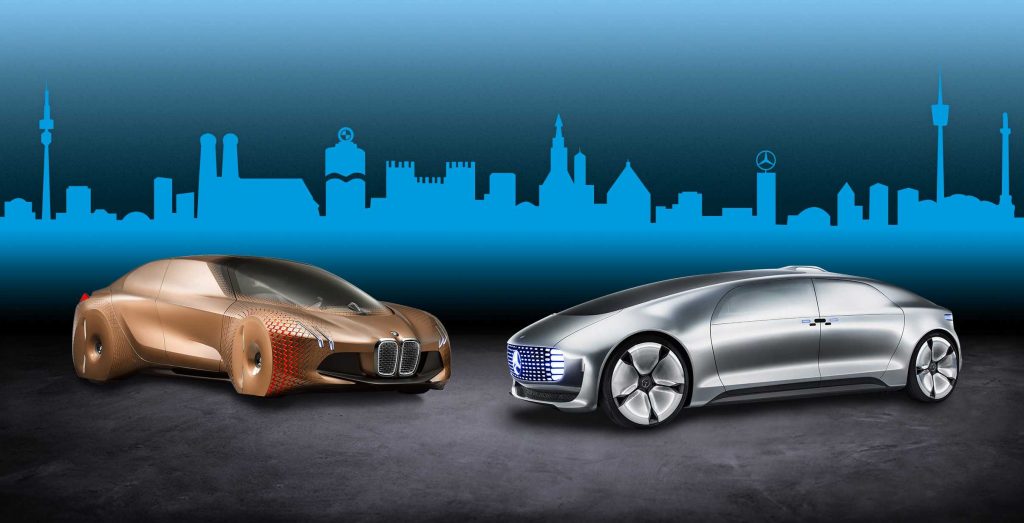German auto giants BMW and Mercedes are blaming “timing” for abandoning a plan to jointly develop autonomous cars.
The two companies had reached an agreement in July last year to enter into a “co-operation” agreement on the development of autonomous cars, or “automated driving”, as the two companies call it.
The developments are intended to build vehicles that are classed as “Level 4” – or “full autonomy with human” – on the SAE’s categorisation.
SAE is a global engineering association which has published a “levels of driving automation” table which goes from Level 0 for no autonomy to Level 5 for full autonomy – that’s driverless.
BMW and Mercedes now say they are “putting development co-operation in automated driving temporarily on hold”, adding that it “may be resumed later”.
The decision to abandon the plan, albeit temporarily, follows an extensive review, with the two companies arriving at “a mutual and amicable agreement” to concentrate on their existing development paths – which may also include working with current or new partners.
Both companies emphasised that co-operation may be resumed at a later date and that the two organisations’ underlying approach to matters such as safety and customer benefits in the field of automated driving remains “highly compatible”.
BMW and Mercedes are both working separately on current generations for highly-automated, or autonomous, driving and have achieved significant progress in this field in the past.
However, the two companies were unable to hold detailed expert discussions and talk to suppliers about technology roadmaps until the contract was signed last year.
Now, in a statement, Daimler says that “after extensive review – both sides concluded that, in view of the expense involved in creating a shared technology platform, as well as current business and economic conditions, the timing is not right for successful implementation of the cooperation”.

Klaus Fröhlich, member of the board of management of BMW, responsible for development, says: “We have systematically further developed our technology and scalable platform with partners like Intel, Mobileye, FCA and Ansys.
“Our current technology generation offers very strong, sustainable potential: With extremely powerful sensors and computing power, our robust modular system puts us in an excellent position to offer our customers what they need for many years.”
Markus Schäfer, member of the board of management of Daimler and Mercedes-Benz responsible for Daimler Group Research and Mercedes-Benz Cars COO, says: “Our expertise complements that of the BMW Group very well, as our successful collaborations have proved. Next to decarbonisation, digitalization is a central strategic pillar for Mercedes-Benz.
“To prepare for the future challenges of a rapidly changing environment, we are currently also sounding out other possibilities with partners outside the automotive sector.”
Both companies also underlined that they would continue working in close cooperation in the remaining fields as planned.
In 2015, the two companies joined with Audi to acquire the location and technology platform HERE Technologies, which now has a very broad and international shareholder structure.
In early 2019, the BMW Group and Daimler also pooled their mobility services in a joint venture under the umbrella of the NOW platform, which offers a range of services including:
- PARK NOW (Parking)
- CHARGE NOW (Charging)
- REACH NOW (Multimodal mobility)
- FREE NOW (Taxi Ride hailing)
- SHARE NOW (Car sharing)
